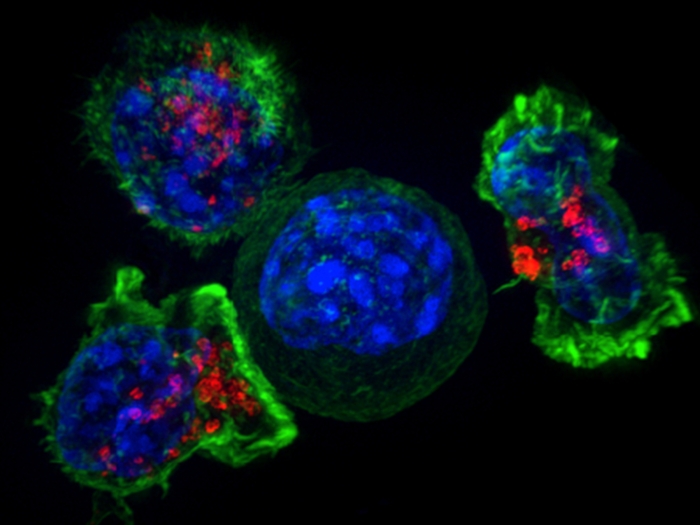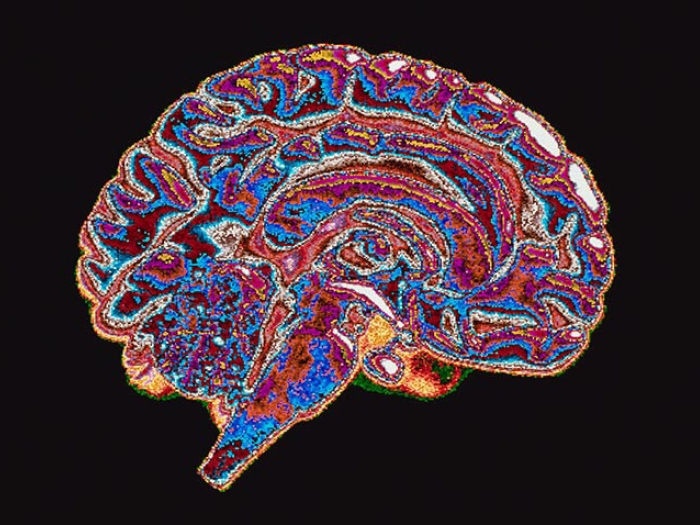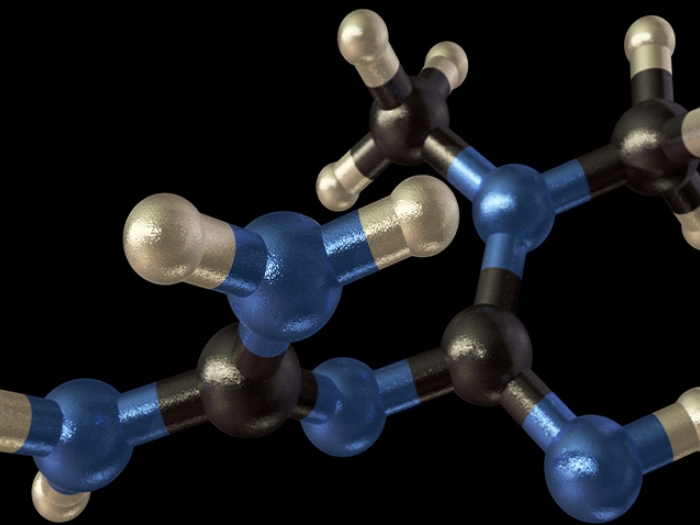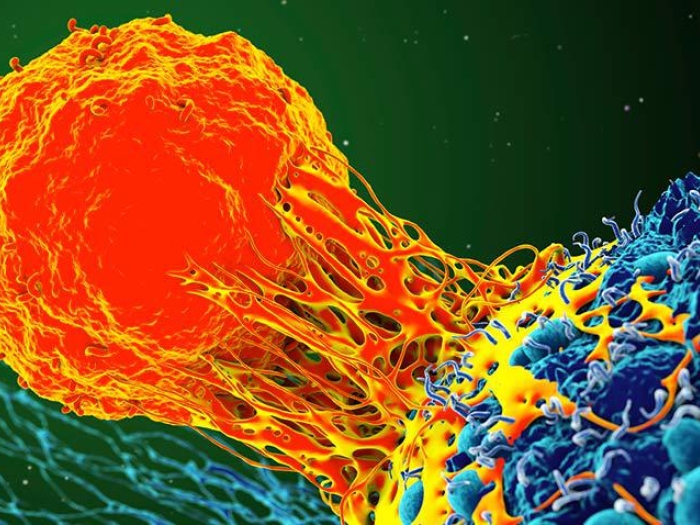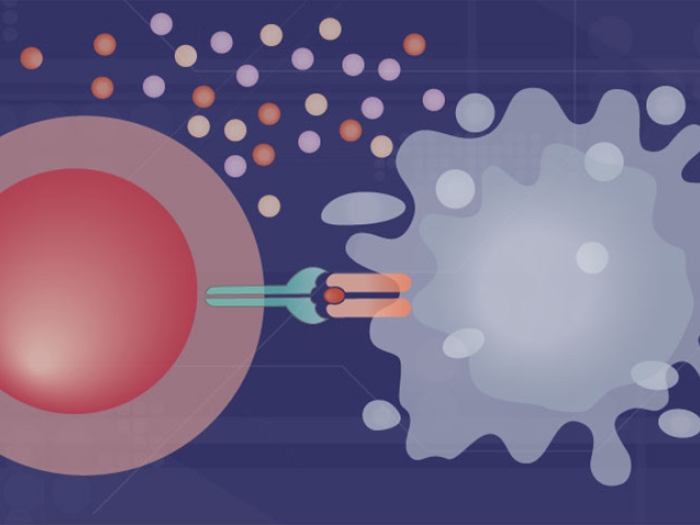A U-M study is the first to define how a little-known type of cell death impacts tumor cells and immune cells.
1:00 PM
Author |

New findings suggest an unexpected path to killing cancer cells could make the hottest cancer treatment — immunotherapy — more effective.
Researchers at the University of Michigan Rogel Cancer Center looked at a little-understood type of cell death called ferroptosis. They found ferroptosis occurs in tumor cells and plays a role in cancer immunity, suggesting the potential of targeting this pathway to improve immunotherapy treatments. The study is published in Nature.
"Ferroptosis had been defined before, but it was not known to be linked to cancer cell death or immune cells. This will open a huge window for scientists to explore," says senior study author Weiping Zou, M.D., Ph.D., the Charles B. de Nancrede Professor of Surgery, Immunology, Biology and Pathology at the University of Michigan.
LISTEN UP: Add the new Michigan Medicine News Break to your Alexa-enabled device, or subscribe to our daily audio updates on iTunes, Google Play and Stitcher.
The researchers, in collaboration with researchers from Cayman Chemical, found that when immunotherapy revs up the immune T-cells, it then enhances oxidized lipids in the tumor cells, which leads to ferroptosis. Increased ferroptosis made immunotherapy treatment more effective at killing the cancer, based on studies in mice and human cancer cells.
Cell death
Ferroptosis is a form of cell death, distinct from the better-known and well-studied apoptosis. It's dependent on iron, but little more is understood about it. It's known to be involved in brain and kidney injuries. This is the first time it's been linked to immune-mediated cancer cell death.
SEE ALSO: Who Might Benefit from Immunotherapy? Study Suggests Possible Marker
In cancer cells, researchers found, the T-cells change the metabolism of the amino acids cystine and cysteine, key fuel sources for tumor cells. Working with chemical engineers from the University of Texas at Austin, the team engineered an enzyme to deplete tumor cells of cystine and cysteine. This led to dramatic tumor cell death, which the researchers could reverse or block by inhibiting ferroptosis.
When mice were given the checkpoint inhibitor immunotherapy drug in combination with the ferroptosis sensitizer, the impact on tumor growth was dramatically stronger than with either agent alone.
Strong response
The researchers conclude the combination of a ferroptosis sensitizer and checkpoint inhibitor creates a strong immune response that fights the tumor by causing ferroptosis. In cancer patients treated with immunotherapy, signs of ferroptosis correlated to the benefits from therapy.
"If ferroptosis is a critical pathway, we may be able to sensitize it to further stimulate immunotherapy or overcome resistance to immunotherapy," Zou says. "We need to understand this better and work out different mechanisms."
This is the initial step, and Zou cites many questions that need to be explored and understood before any treatment moves forward.
SEE ALSO: How a Poorly Explored Immune Cell May Impact Cancer Immunity and Immunotherapy
"Immunotherapy is effective in only about 30 percent of cancer patients. Our findings provide new insights to understand and explore how to make the immune system work for more patients," Zou says.
Disclosure: The University of Michigan has applied for patent protection and is seeking commercialization partners for this technology.

Explore a variety of health care news & stories by visiting the Health Lab home page for more articles.

Department of Communication at Michigan Medicine
Want top health & research news weekly? Sign up for Health Lab’s newsletters today!
